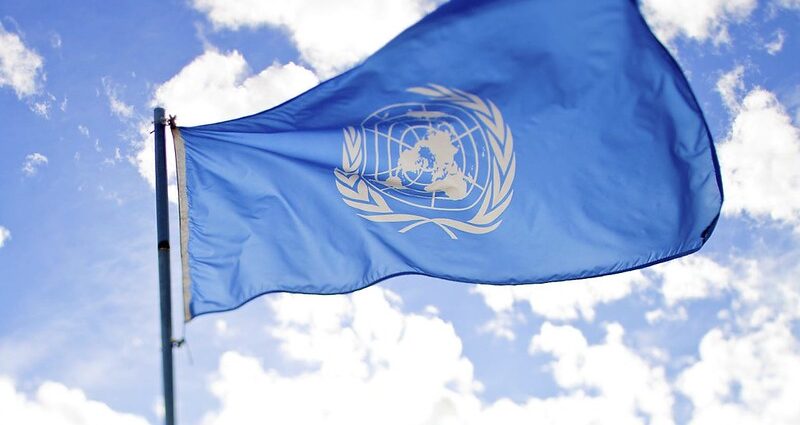Alanya Smith
COP27 demands the attention of international leaders to take progressive steps in integrating economic development in alignment with the UN’s dedication to tackling climate change. Yet during a period of national turmoil in British politics and economics, what can we hope to see at this year’s conference?
Hosted in Egypt’s tourist cornucopia Sharm el-Sheikh, the 27th Conference of the Parties of the United Nations Framework Convention on Climate Change – COP27 for short – will take place between Sunday 6 November and Friday 18 November. The core aims of the conference include reducing greenhouse gas emissions and aiding transitions to net-zero economies through sustainable practices which also help to extinguish poverty.
In preparation for the event, Amnesty International released a report declaring Egypt was combatting a “human rights crisis“, drawing scrutiny to the event’s location. Although Cairo officials have dismissed this claim as “misleading“, humanitarian action has been key to the ethos and event preparation occurring within Egypt. Human rights groups have encouraged open civic spaces and the release of political prisoners before the summit, outlined in a petition titled ‘Egyptian Human Rights Coalition’, which has gained support from over 100 international non-government organisations. It is anticipated that over 60,000 political prisoners are currently incarcerated, many without trial, as a result of President Abdel Fattah El-Sisi’s ‘crackdown on dissent‘.
An activist who remained anonymous disclosed to the BBC: “You will have activists from everywhere in the world coming to COP, but Egyptian activists are either blocked from going or they’re in jail”
Global Action
Speakers from around the world will unite to discuss urgent environmental dangers, mitigate worsening pollution levels and implement sustainable infrastructures in social, economic, and political practice. In sharing scientific research with world leaders, the summit is an optimal time for greater understanding regarding the negative consequences of climate change. The event will implore collaborative discussion of what can be done to eliminate these disasters.
On COP27, President Abdel Fattah El-Sisi stated: “I deeply believe that COP27 is an opportunity to showcase unity against an existential threat that we can only overcome through concerted action and effective implementation.”
Activist, endurance swimmer, and UN Patron of the Oceans Lewis Pugh has gained publicity for swimming across the Red Sea to draw attention to coral reef degradation. His trailblazing journey began in Saudi Arabia, and is expected to take two weeks, before reaching Hurghada, Egypt prior to the conference.
Presently, coral reefs are highly vulnerable to increasing temperatures, with an expected 1.5 degrees celcius global temperature increase predicted to decimate 90 per cent of reefs. Marine destruction will be one of the 300+ topics discussed across the summit, with 35,000+ participants and 2,000+ speakers expected.
Impacts of the climate crisis are felt in every country.
Share how they are affecting you & make your voice heard ahead of the UN climate conference #COP27.
📢 Speak up for #ClimateAction: https://t.co/uQTMNe6LzX via @UNDP #DearWorldLeaders pic.twitter.com/zeRQDGyYPA
— United Nations (@UN) October 16, 2022
British Involvement
Ex-Prime Minister Liz Truss was set to join fellow leaders in Egypt at the conference, after advising King Charles III to not attend the event during a personal audience with the monarch.
Climate concerns among the British public have been rife in the year following COP26, which was hosted in Glasgow in 2021. Key takeaways from the event included future US-China cooperation, tackling deforestation, and providing financial support to economically developing countries to aid in climate change resilience. The progression towards these goals will be an apt agenda topic during the conference.
Notably, artist Vincent Van Gough’s ‘Sunflowers’ painting was vandalised by protesters on Friday 14 October, raising awareness of fossil fuel extraction from the British government. The act was part of a broader movement by Just Stop Oil, criticising reliance on unsustainable fossil fuels and demanding a shift to renewable energy sources.
Despite two tins of soup being thrown over the painting, a protective glass shield ensured that the art itself was not damaged. This form of protest depicts the turbulent landscape of British attitudes to climate change and the ‘inaction’ of parliamentary officials in encouraging environmentally conscious policies.
To support youth engagement with climate change, the BBC have collated a range of material to teach primary and secondary school children about the importance of the event. The resources include activities, films and information pages.
Featured image courtesy of Sanjitbakshi via Flickr. Image license found here. No edits were made to this image.

